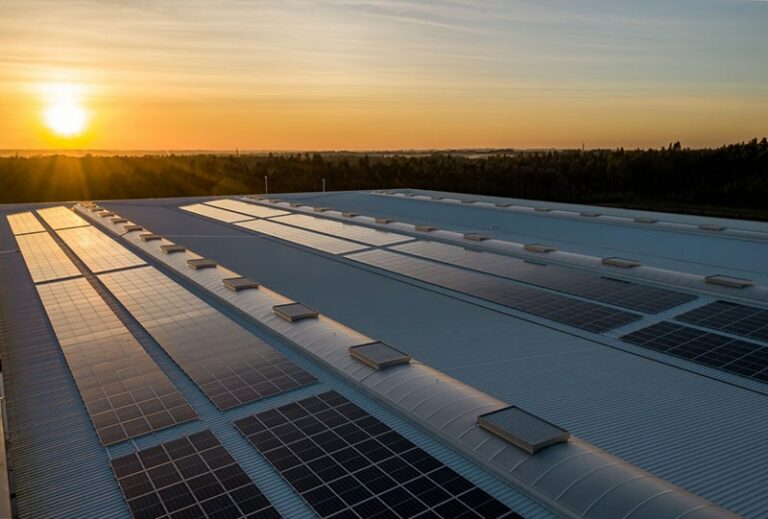Did you know that the cost of solar panels has dropped by 70% in the last eight years? As the price of this technology continues to drop we can expect this form of renewable energy to only get more popular.
However, despite its prevalence, many people are still unfamiliar with how technology works. So, how do solar panels work? And what are the benefits of solar power?
If you want to learn the answer to these questions, and more, you’re in the right place. In this guide, we’ll teach you everything you need to know about solar panels. Let’s get started!
What Are Solar Panels?
Before learning how they work we need to answer the question, What are solar panels. Solar panels are photovoltaic technology. When the sun gives off light that light is composed of particles of energy known as photons.
Photovoltaic panels harness the power of these protons by converting them into a usable form of electricity. These days we mostly associate the power from solar panels with commercial and residential electronic systems.
But, this is far from the only type of application. These days solar panels are used in telecommunications equipment, remote sensing, and power systems found in remote places.
Now that we know some of the basics behind the science, let’s dive into how these photovoltaic panels work.
How Do Solar Panels Work?
To understand how solar panels work you need to know about the photovoltaic effect. This is the process in which panels convert photons into electricity.
Each cell of a solar panel contains elements of phosphorus, boron, and silicone. The silicone and phosphorus provide the negative charge, while the silicone provides the positive.
When a beam of sun hits this material it creates an electric current. The photons in the light then knock the electrons from their atomic orbits. Once the electrons are free they enter the electric field.
Once this is done the free electrons are pulled into a directional current. However, as it stands the electricity still can’t be used. That’s because it’s in the form of AC electricity.
Our homes need DC electricity to run properly. So, a solar inverter converts the energy as it passes through it. From there, electricity runs through our house powering all of the devices we need.
However, there’s usually a hidden fourth step of the process. If your solar system is tied to the power grid, any excess energy will flow back to the grid to power other houses.
This is known as net metering and in return for it, you receive bill credits on any energy you use through the power grid.
What Are the Benefits of Solar Panels?
One of the most important benefits of solar panels that comes with solar panels is likely the most obvious one: it’s green energy. The sun is a renewable resource that doesn’t emit greenhouse gases.
This makes it a clean energy solution to a world that’s increasingly plagued by climate change problems. And, greenhouse gases aren’t the only thing that solar panels don’t emit.
They also don’t emit toxins, contaminants, waste, or contaminated water. However, a cleaner energy source isn’t the only benefit. Solar panels also save you money.
Think about the thousands of dollars you’ve spent on electricity bills over the years. With a solar system, you can reduce them every month. In some cases, you can even get rid of them altogether if your system is large enough.
That means that you save thousands of dollars each year. Make no mistake, solar systems are expensive. But, they also last a long time. And, because of the energy savings if you keep them long enough they can pay for themselves.
Finally, solar panels are more affordable than ever before. Plus, the government is incentivizing their installation through solar tax credits. So, you can save tons of money when you install a system.
How Do You Install Solar Panels?
Hopefully, at this point, you’re convinced that a solar system will make a good addition to your property. However, solar systems can be expensive. So, you might be tempted to try saving a buck by installing it yourself.
While it’s possible to go the DIY route with solar panels, we don’t recommend it for a variety of reasons. First, it can be dangerous. Installation requires long hours of installing panels and mounting systems on a roof.
If you don’t have much experience, you could easily fall off and hurt yourself. However, let’s say you have some experience working on roofs. Mounting the hardware isn’t the hard part.
The difficult part comes when you need to tie the system to an electrical grid, wire it for your home electricity, and calibrate the system. And, that’s not even counting all of the permits that you need to get before you can even start working it, as well as the safety inspection at the end.
Without a well-designed system, the city likely won’t approve of your solar project because it’s dangerous. Luckily, a good solar installer can help you each step of the way, from design to installation.
Plus, they ensure that you own your solar system with a warranty. Remember that warranties for solar panels are almost always voided when you install the system yourself.
Want More Solar Panel Content? Check Out More
We hope this article helped you answer the question, How do solar panels work? As you can see, the process of converting sunlight into usable electricity through PV cells is quite complicated.
As such, there’s a lot that can go wrong with the installation. So, if you believe that a solar system is right for you, make sure you go with a qualified installer. Did you love this article?
If the answer is yes, then odds are that you want more like it. Luckily, we’re always adding new content to our site. So, continue diving in to learn everything you can about a diverse range of subjects.

0 Comments